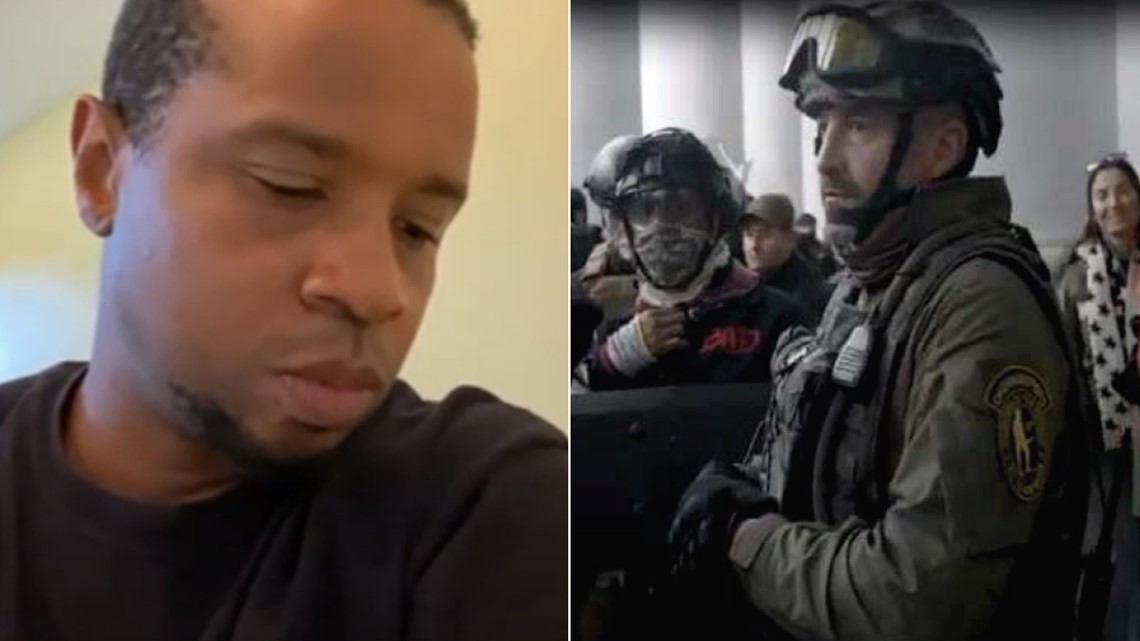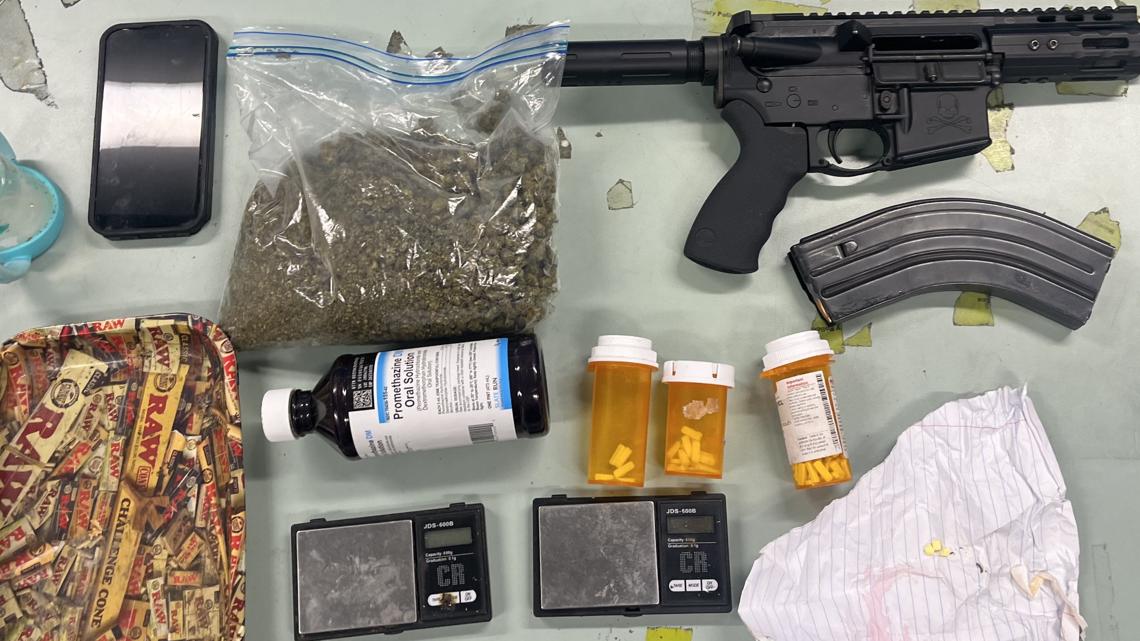James Beeks, of Florida, and Donovan Crowl, of Ohio, will appear before a federal judge on Monday facing multiple felony counts.
WASHINGTON — Two Oath Keepers defendants facing multiple felony counts for their alleged roles in a conspiracy to stop the certification of the 2020 election on Jan. 6 will begin trial Monday — but not before a jury as planned.
During a status hearing Wednesday morning, Assistant U.S. Attorney Troy Edwards said the Justice Department and attorneys for defendants Donovan Crowl and James Beeks had agreed to a stipulated trial that could drastically shorten the scheduled proceeding.
The first Oath Keepers trial, which included Watkins and militia founder Stewart Rhodes, took approximately 10 weeks to conclude. Under the proposed agreement between the DOJ and the defendants, however, Crowl and Beeks' trial before U.S. District Judge Amit P. Mehta could take as little as one-to-two days to complete.


In a stipulated bench trial, prosecutors present a set of agreed-upon facts they feel are sufficient to uphold a conviction on one or more counts. In some stipulated trials, defendants also agree not to contest the sufficiency of the evidence — however Edwards said that would not be the case here. Instead, after presenting the stipulations, attorneys will immediately proceed to closing arguments. Mehta will then issue on a verdict on each count.
Crowl, who came to D.C. as part of the Ohio State Regular Militia founded by Oath Keeper Jessica Watkins, and Beeks, a Florida resident and former Broadway actor who joined the militia only in the weeks prior to Jan. 6, face seven counts each, including multiple felony counts of conspiracy, obstruction of an official proceeding and civil disorder. They were scheduled to begin a jury trial on Monday alongside a third co-defendant, former Oath Keepers general counsel Kellye SoRelle, however last month she was determined to be incompetent to stand trial.
According to Crowl's attorney, Carmen Hernandez, the parties reached an agreement to proceed with the stipulated trial on two felony counts: conspiracy to obstruct an official proceeding and civil disorder. Prosecutors would then dismiss three other felony counts and a misdemeanor. Although under Supreme Court precedent stipulated bench trials are not always tantamount to a guilty plea, defendants who agree to them can – and in multiple Jan. 6 cases have – argue they deserve a reduction in their sentences for acceptance of guilt.
Hernandez said as of Wednesday afternoon the defense and prosecutors were still hashing out the details of exactly what evidence they would stipulate to.
Nearly two dozen Oath Keepers have now pleaded guilty to or been convicted at trial of crimes ranging from seditious conspiracy to destroying evidence in connection with the Jan. 6 assault on the U.S. Capitol. Last month, Mehta sentenced militia leader Rhodes and one of his top lieutenants, Florida state leader Kelly Meggs, to 18 and 12 years in prison, respectively. Sentences for the remaining Oath Keepers defendants sentenced to date have varied widely. Watkins, who brought Crowl and other members of her own militia to D.C. to join the Oath Keepers, received eight-and-a-half years in prison. Kenneth Harrelson, who served as Meggs' number two in the Florida chapter, was sentenced to four years.
.png)









 English (US) ·
English (US) ·